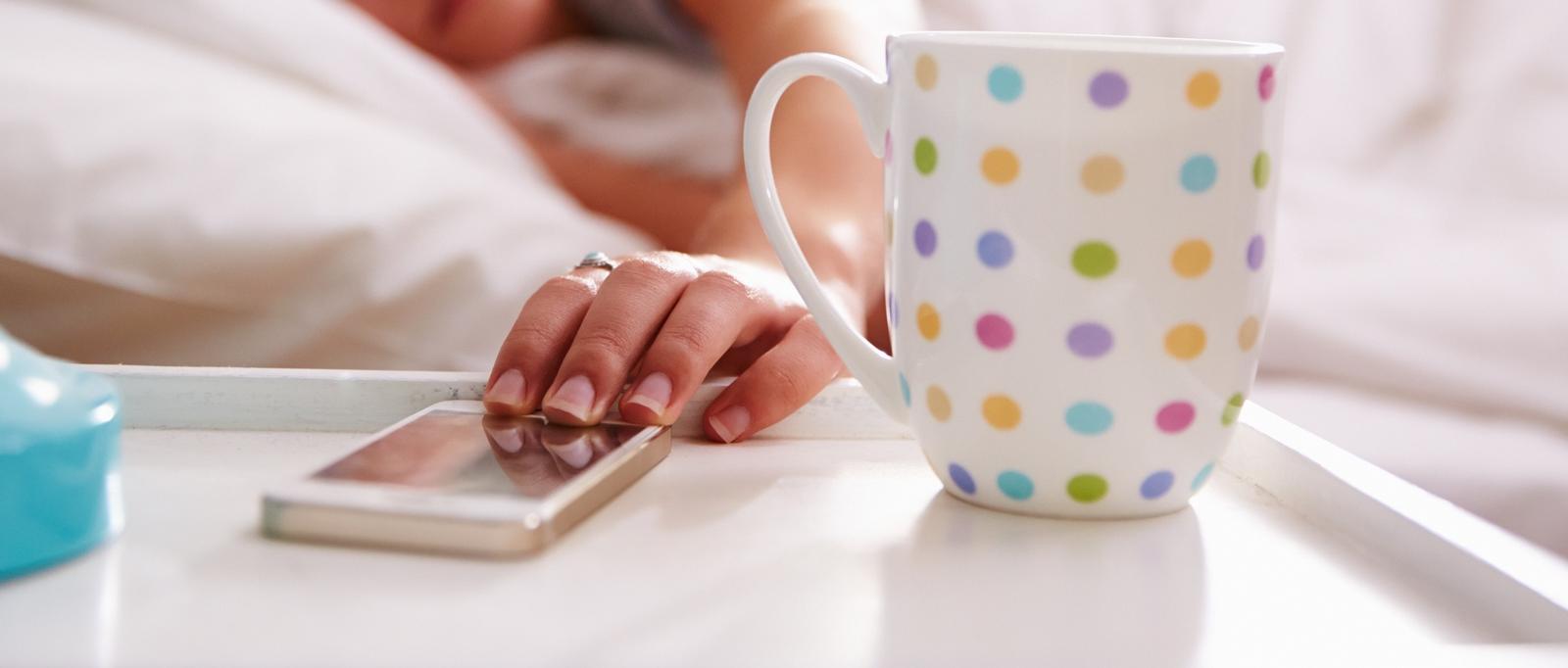
Why phones should be banned from the bedroom
Peer reviewed by Dr Laurence KnottLast updated by Dr Laurence KnottLast updated 26 Sept 2017
Meets Patient’s editorial guidelines
- DownloadDownload
- Share
- Language
- Discussion
If human evolution goes the way it has over the past few thousand years, it won’t be long before the first few babies are born with mobile phones in their hands. The relationship we have with our phones goes far beyond any reasonable need to establish telephonic communication. The theory is that what we have in our hands are not phones but syringes, ready to inject little packets of dopamine, the ‘pleasure chemical’.
In this article:
Researchers found that the use of information technology, particularly smart phones, causes chemical changes in the brain similar to those we experience when we drink alcohol, have sex or are given money. The use of smart phones is addictive, especially when we share details of our lives on social media.
Continue reading below
Getting a digital dose
So every time we get a like on Facebook, a text message or an email, our dopamine level is given a boost and we feel good. Simon Sinek, author, motivational speaker and marketing consultant, believes this is a particular problem of the millennial generation (those born from 1984) who were brought up with a sense of entitlement. Denied nothing by their parents, they grew up to believe that their every need should be instantly satisfied. Finding the real world was not like that, they needed to find coping strategies to deal with the inevitable drop in self-esteem that followed.
Some used alcohol, some drugs and others turned to their smart phones. There’s nothing like that little ping on your phone notifying you that someone somewhere is making contact.
The theory holds out so far but has its detractors. Every generation has its problems and many believe this is over-generalising. Animal studies suggest that dopamine is not quite the pleasure chemical it was once thought to be.
Nevertheless, whatever neurobiochemical high jinks are going on, the evidence that smart phone use is addictive continues to grow. Studied measuring the part of the brain associated with pleasure, gratification and reward (the mesolimbic system) show that activity does increase whenever we use smart phones, particularly to access social media.
Why is smart phone addiction important?
It’s not as if people have needed organ transplants from smart phone dependency or catch nasty infections from sharing phones. The fact is that smart phone addiction has been shown to damage finances, destroy relationships and prevent people from achieving their full potential in the workplace and in society as a whole.
Taking a smart phone into the bedroom raises the problem to a whole new level. Studies suggest that the use of smart phones in the bedroom is associated with a delay in the sleep cycle, so people go to sleep later and wake later. Not good news if you have to get up in the morning.
If it’s your partner who’s taking their mobile phone into the bedroom, it might be worth mentioning that the glow eminating from their side of the bed isn't doing either of you any good.
Like celebrities that hate each other (see British Journal of Gwyneth Paltrow and Madonna) it has long been known that dopamine and melatonin are mutually antagonistic.
Continue reading below
Explaining our device vice
Whatever the link between dopamine and addiction, it’s known that levels rise when the mesolimbic system is activated. It’s tempting to suggest that anything which stimulates the mesolimbic system is going to inhibit melatonin production. So the last thing you need is a huge boost of mesolimbic activity before you try to sleep.
There is of course another issue; LED screens. Studies with e-readers showed that exposure to blue light (which looks white but is perversely in the blue spectrum) is known to affect the
levels of melanopsin, a photopigment with many functions, including those associated with sleep.
Taking a smart phone into the bedroom is not in itself harmful. If it’s switched off, and you don’t use it.
But add in the availability and addictive potential of the technology, the chances are that the phone will get switched on sooner or later. Having just closed down your laptop in the living room, your mesolimbic system is already in overdrive. You can’t sleep, you’re bored, and maybe a little bit down after underperforming at work (because you were tired from your lack of sleep the night before). Is anybody still awake? Might as well check out what your Facebook friends in Australia are up to.
So what’s the solution?
It’s simple. Don’t take your smart phone into the bedroom.
This is where the voice of the true addict pipes up. ‘But I charge my phone in the bedroom’. So charge your phone in the living room. ‘Someone might need me in an emergency.’ Be honest. When did anyone last need you at night in an emergency? Best of all, ‘I use my phone as an alarm clock’. So buy an alarm clock. You can get them for a fiver - just don't choose one with a huge glowing screen if you actually want to sleep.
I’m not one of those doctors who’s under the illusion that just because advice is good, it will be taken. There will be people who would rather lose an eye than an iPhone.
In that case, you’re in a damage limitation scenario. Apps which enable your phone to adjust to ambient lighting are available, some shipped free with the phone. The theory is that reduced LED lighting will maintain your melanopsis levels, and people do find them helpful.
For those who genuinely have to take emergency phone calls at night there are apps which unplug you from the internet whilst keeping the phone function working, and ‘dumb’ retro-phones which have no internet connection at all.
Patient picks for Sleep and insomnia

Healthy living
Should you keep a dream journal?
Journaling can be seen as a light-hearted activity, and writing in notebooks throughout the day might not be something we give much thought to. However, recording your dreams can offer benefits for your mental health and the quality of your sleep.
by Emily Jane Bashforth

Healthy living
What binge-watching is really doing to your health
Almost all of us have probably been guilty of binge-watching our favourite show at some point. And with the rise of streaming services such as Netflix, it's becoming easier and easier to stay glued to screens for hours at a time - sometimes to the detriment of our health.
by Ross Davies
Continue reading below
Article history
The information on this page is peer reviewed by qualified clinicians.
26 Sept 2017 | Latest version

Ask, share, connect.
Browse discussions, ask questions, and share experiences across hundreds of health topics.

Feeling unwell?
Assess your symptoms online for free
Sign up to the Patient newsletter
Your weekly dose of clear, trustworthy health advice - written to help you feel informed, confident and in control.
By subscribing you accept our Privacy Policy. You can unsubscribe at any time. We never sell your data.